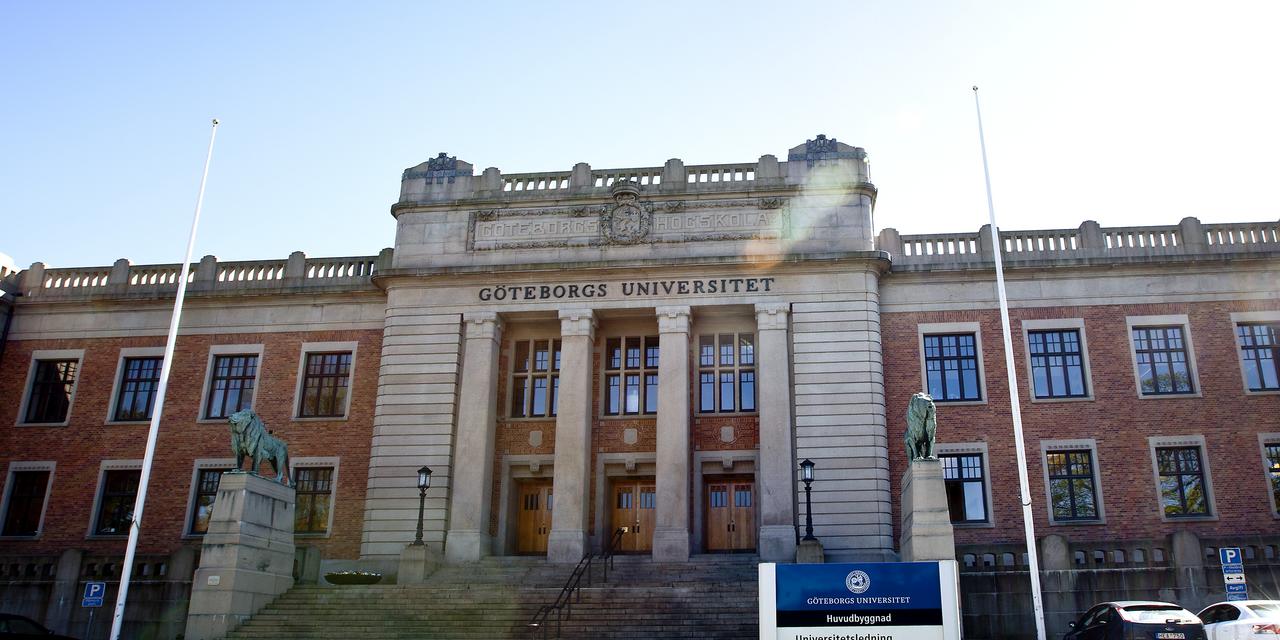
Vasaparken Göteborgs universitet
Ref PAR 2023/601
The University of Gothenburg tackles society’s challenges with diverse knowledge. 56 000 students and 6 600 employees make the university a large and inspiring place to work and study. Strong research and attractive study programmes attract scientists and students from around the world. With new knowledge and new perspectives, the University contributes to a better future.
The Department of Physics at the University of Gothenburg is located on the main campus of Chalmers University of Technology in Gothenburg, with a total of some 80 employees. The communication routes are good both nationally and internationally. The researching focuses within the fields of Atom- and Molecular Physics, Condensed Matter Physics and Spintronics, and Complex Systems and Biophysics and is performed in an international environment with extensive national and international collaborations. The education programs at the Department include Bachelor- and Master programs in Physics, physics teacher-training programs, as well as outreach courses in Physics aimed for the general public. Gothenburg Physics Centre is a close collaboration with four other departments within the Faculty of Science and Chalmers University of Technology creates an innovative environment for all researchers and students at the department.
Information about research group:
One of the most successful research areas at the department is spintronics in Professor Johan Åkerman’s group with a particular focus on magnetodynamic phenomena in thin films and spintronic devices. These devices are studied using magnetic, electrical and optical methods, and modeled using GPU-accelerated micromagnetic simulations. The group already has funding from both the Swedish Research Council and the European Research Council for this research. Starting from the autumn of 2023, the group also has a research grant from the Knut & Alice Wallenberg foundation to develop various prototypes of Ising machines based on spin waves. The department is therefore looking for two Postdocs in experimental spintronics with a focus on YIG-based components, their characterization with microwave measurements, and Ising machines based on those. For a relevant research article for the project, see: A. Litvinenko et al, arXiv:2209.04291 (accepted in Communications Physics)
Job assignments
The main tasks are research. The duties are broad and will, depending on the candidates background and expertise, include a combination of the tasks below:
- Design, fabrication, and detailed magnetic and magnetodynamic characterization of wideband YIG delay lines with compensated dispersion.
- Analog design of ring delay line oscillators and digital design on control electronics, i.e. FPGA-based and microcontroller-based signal processing blocks for the operation in time-multiplexed Ising machines.
- Optimization of annealing schemes and computational protocols for time-multiplexed Ising machines. Numerical simulation of time-multiplexed Ising machines.
- Characterization of electronic blocks and the overall computing performance of the developed Ising machines.
- Elaboration of project documentation, reports and presentations.
You will work together with other doctoral students, postdocs, and researchers. You are expected to write patents and scientific articles based on your results. You are also expected to present your results at scientific conferences.
Qualifications
We are looking for you who have a PhD in either physics, electronics/electrical engineering, computer science, or mathematics, as long as your thesis and previous experience are directly relevant to Ising machines. Relevant experiences can for example be in magnonics, spin waves, design of digital/analog circuits and PCBs for RF applications, microwave measurements of delay lines/amplifiers/mixers/oscillators, FPGA programming, programming of microcontrollers, micromagnetic simulations in MuMax and Comsol, python/matlab/mathematica. Your scientific skills will be evaluated and be based mainly on peer-reviewed publications in scientific journals, patents, and prototypes, as well as invited talks at international conferences.
Eligibility
To qualify as a postdoctoral fellow, the applicant must have completed a Swedish doctoral degree or must have a foreign degree corresponding to a Swedish doctoral degree.
Preference will be given to candidates who have been awarded the degree no more than three years before the application deadline and who have not held a post-doc position within the same or similar subject area at the University of Gothenburg for more than one year. Applicants with a degree obtained earlier than the stipulated three years may be preferred if special reasons exists. Special reasons in this context include, but are not limited to, leave due to illness and parental leave.
Assessment
Regulations for the evaluation of qualifications for academic positions are given in Chapter 4, Section 3 – 4 of the Higher Education Ordinance.
Employment
Type of employment: Fixed-term employment, up to a maximum of 3 years in periods of 2+1 years.
Extent: 100 %
Location: Department of Physics, Gothenburg
First day of employment: October 1, 2023
Appointment procedure
Please apply online
The application shall include:
Cover letter with an explanation of why you apply for the position
CV including scientific publications
Copy of exam certificate
Two referees (name, telephone no, relation)
For further information:
Regarding the position please contact
Johan Åkerman, Professor, johan.akerman@physics.gu.se
Unions
Union representatives at the University of Gothenburg: http://www.gu.se/english/about_the_university/job-opportunities/union-representatives
How to apply
In order to apply for a position at the University of Gothenburg, you have to register an account in our online recruitment system. It is the responsibility of the applicant to ensure that the application is complete in accordance with the instructions in the job advertisement, and that it is submitted before the deadline. The selection of candidates is made on the basis of the qualifications registered in the application.
The application is to be written in English.
The University works actively to achieve a working environment with equal conditions, and values the qualities that diversity brings to its operations.
Salaries are set individually at the University.
In accordance with the National Archives of Sweden’s regulations, the University must archive application documents for two years after the appointment is filled. If you request that your documents are returned, they will be returned to you once the two years have passed. Otherwise, they will be destroyed.
In connection to this recruitment, we have already decided which recruitment channels we should use. We therefore decline further contact with vendors, recruitment and staffing companies.
Apply





